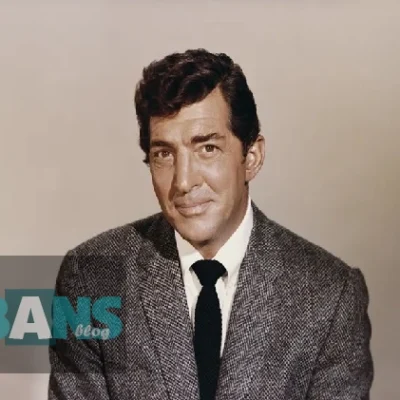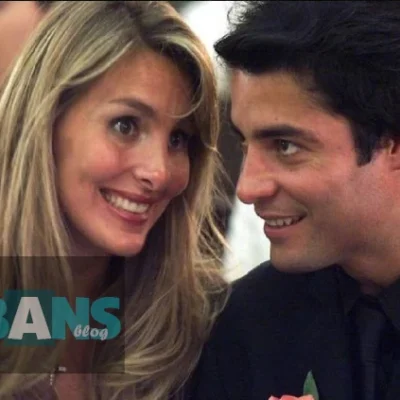Exploring the Impact of Actor Ron O’Neal in Cinema
Who Was Ron O’Neal? Ron O’Neal was a talented actor and filmmaker. He was born on September 1, 1937, in New York City. He grew up in a world filled with art and creativity. O’Neal started his acting career in the 1960s. He performed in various theater productions, showing off his skills. But it was in the 1970s that he became a household name. He starred in the famous film Super Fly in 1972. This movie made a huge impact on the film industry and on audiences everywhere.
O’Neal’s career wasn’t just about acting. He also worked as a director and a screenwriter. He was passionate about telling stories that represented African-American experiences. His work in films helped shape the genre of Blaxploitation. It was a time when Black actors and stories were finally getting more attention in Hollywood. They were breaking barriers and opening doors for future generations. Sadly, Ron O’Neal passed away in 2004. But his contributions to cinema will always be remembered.
Quick Bio of Actor Ron O’Neal
| Attribute | Details |
|---|---|
| Full Name | Ron O’Neal |
| Date of Birth | September 1, 1937 |
| Place of Birth | New York City, New York, USA |
| Date of Death | January 14, 2004 |
| Occupation | Actor, Director, Screenwriter |
| Notable Films | Super Fly, Foxy Brown, The Final Comedown |
| Genres | Blaxploitation, Drama, Action |
| Cultural Influence | Prominent figure in African-American cinema |
| Awards | Nominated for several film awards, recognized in film festivals |
| Legacy | Influenced future generations of actors and filmmakers |
What Made Ron O’Neal a Cultural Icon?
Ron O’Neal became a cultural icon for many reasons. First, he was one of the few Black actors who starred in leading roles during his time. His portrayal of Youngblood in Super Fly resonated with audiences. The character was a drug dealer trying to escape his life while still being true to his roots. O’Neal’s performance was powerful and relatable. It showed the struggles and realities many people faced.
Also, O’Neal’s roles often challenged stereotypes. He wasn’t just a typical action hero. He brought depth to his characters, showing their complex emotions and struggles. This made viewers connect with him. He represented a new wave of African-American cinema that focused on real-life issues, not just entertainment. His work inspired many other actors, including big names like Denzel Washington and Samuel L. Jackson, who followed in his footsteps.
O’Neal also worked with talented actresses like Pam Grier. They starred together in various films, creating strong on-screen chemistry. Their collaborations helped push the boundaries of what was possible for Black actors in Hollywood. O’Neal’s influence as a cultural icon continues to be felt today.
Ron O’Neal and Blaxploitation Films: A New Era
Ron O’Neal was a key figure in the Blaxploitation genre. This genre emerged in the early 1970s and featured films made for Black audiences. These movies often had strong Black characters, unique storylines, and catchy soundtracks. O’Neal’s film Super Fly became one of the defining films of this genre.
In Super Fly, O’Neal played a character that many people could relate to. The film tackled issues like poverty, crime, and the desire for a better life. It wasn’t just about action; it focused on real problems in society. This was a big change from the typical films of that era.
O’Neal’s work helped pave the way for other films in the Blaxploitation genre. Movies like Foxy Brown and Shaft followed, featuring strong Black leads. These films gained popularity and made a significant impact on the film industry. They challenged Hollywood to create more diverse and representative stories. O’Neal’s contributions helped start a movement that changed cinema forever.
Key Films: A Look at O’Neal’s Filmography
Ron O’Neal had a diverse filmography that showcased his talent. Besides Super Fly, he appeared in several other notable films. For instance, he starred in Foxy Brown, another classic Blaxploitation film. His performances often highlighted the struggles of African-American life in urban settings.
Another key film was The Final Comedown. In it, O’Neal played a revolutionary who fought against the system. This movie, like many of his others, tackled social issues head-on. It wasn’t afraid to show the harsh realities of life, making it stand out.
O’Neal also worked in television. He appeared in shows like The Mod Squad and The Cosby Show. These appearances helped him reach a broader audience. They showcased his versatility as an actor. O’Neal’s ability to connect with viewers through different mediums made him a memorable figure in entertainment.
How Did O’Neal Influence Future Generations?
Ron O’Neal’s influence extends beyond his own career. He opened doors for future generations of actors and filmmakers. His success in Hollywood inspired many young Black actors. They saw that it was possible to achieve their dreams, no matter the odds.
Many famous actors today credit O’Neal as an inspiration. Denzel Washington and Samuel L. Jackson often mention how his work paved the way for them. They appreciate how he brought depth to his characters and challenged stereotypes. O’Neal’s dedication to representing African-American stories accurately helped change the landscape of Hollywood.
Additionally, filmmakers like Spike Lee have also been influenced by O’Neal’s work. They continue to tell stories that highlight the African-American experience. By doing so, they honor O’Neal’s legacy and strive to follow in his footsteps. His influence is still felt today, reminding everyone of the importance of representation in cinema.
Behind the Scenes: O’Neal’s Acting Techniques
Ron O’Neal was known for his unique acting techniques. He studied at the Actor’s Studio, where he learned about method acting. This approach meant he deeply connected with his characters. He didn’t just act; he became them. O’Neal would often immerse himself in the role, understanding the character’s emotions and experiences.
His dedication to his craft showed in every performance. He believed in character development and worked hard to bring authentic stories to life. O’Neal’s ability to convey deep emotions made his performances memorable. He wasn’t just a pretty face on screen; he had something important to say.
Moreover, O’Neal collaborated closely with directors and other actors. This teamwork helped create powerful scenes that resonated with audiences. His commitment to his roles and his willingness to learn from others made him a respected figure in the film industry.
Legacy: Remembering Ron O’Neal Today
Ron O’Neal’s legacy lives on in various ways. His contributions to the film industry are still celebrated. Movies like Super Fly and Foxy Brown are recognized as classics. They remind viewers of the cultural impact O’Neal had on cinema. His work is often discussed in film studies and cultural critique.
Film festivals, like the Tribeca Film Festival, often highlight films from the Blaxploitation era. They recognize the importance of these movies and the actors who starred in them. O’Neal’s work is part of that conversation. His influence on African-American cinema is undeniable, and it continues to inspire new filmmakers.
O’Neal is also remembered through various awards and honors. While he may not have won an Academy Award, his contributions are still celebrated in film history. His legacy is one of breaking barriers and creating opportunities for others. Ron O’Neal will always be a significant figure in the story of cinema.
Conclusion: What Can We Learn from Ron O’Neal?
Ron O’Neal’s life and career teach us many valuable lessons. First, he showed how important it is to tell authentic stories. He believed in representing African-American experiences, which helped change Hollywood.
Next, O’Neal’s dedication to his craft reminds everyone to work hard and strive for excellence. He didn’t just want to be an actor; he wanted to make a difference. His commitment to character development and authentic storytelling is something all actors should aspire to.
Finally, O’Neal’s legacy teaches us the power of representation in film. His work opened doors for future generations. It showed that stories from different perspectives matter. So, let’s continue to celebrate Ron O’Neal and the impact he made on cinema.
If you want to learn more about amazing figures like Ron O’Neal, visit UrbansBlog. They’re not just entertaining; they’re also an important part of film history.





No Comment! Be the first one.